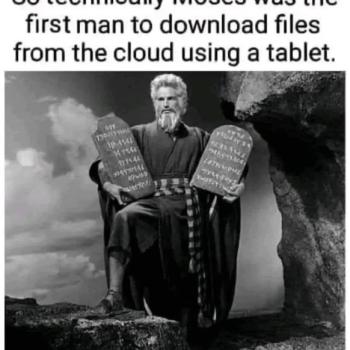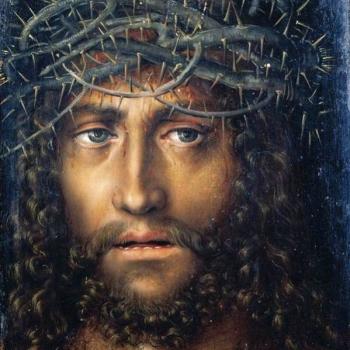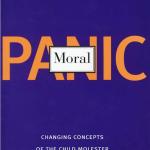What can one do in 40 minutes with such a title? An exam candidate once said: ‘I can answer none of these questions but I will write down all I know.’ What I can do is a) state some principles and b) back them up (not prove them) with a few examples.
I. Principles: we will have two, paradoxical ones a) the NT is a by product of the early church, showing up how it went about its business. and b) the NT is creative of and authoritative over the early church. We go on to look at the principles in concrete terms, but inevitably take a few examples out of many.
II. Examples. a) above is the easiest proposition to illustrate. Start with the epistles, 1 and 2 Corinthians, one of the great mystery stories. There were not two epistles but at least four. See 1 Cor.5.9, 2 Cor. 2.4; 7.8. What do we have? Is there part of the previous letter in 2 Cor. 6.14-7.1? Is 2 Cor. 10-13 part of the sorrowful letter? Should 1 Cor. be divided? Note 1 Cor. 4.19/16.8; 4.17/16.10. Why the two treatment of ‘eidolothuta in 1 Cor. 8 and 10.. This is not convincing. What of Paul’s movements? The founding visit sorrowful visit 2 Cor. 2.1, complaint 1.15-17, threatened 12.21, 13.2. All I want from this is not a clear solution but a picture of a working pastor. He has proceeded to work on divisions in 1 Cor. 1-4, humanity 5, legalities 6, marriage 7, idolatry 8, challenges 9, idolatry 10, women 11, Lord’s Supper 11, gifts 12,14, resurrection 15, and collection 16, and also this plus 2 Corinthians! He deals with this by the affirmation of tradition 15.1-7 (+ P); 11.23 and of Christian common sense. Note how far this leads him for example in reciprocity in marriage, 7.4. Tradition leads further. Note the kataaggallete in 11.26. This takes us to. Gospels. How they grew– backwards. There was an early continuous Passion narrative, then controversies especially Mk. 2.1-3.6, 11.15 (12.13)-12.34. Christology– baptism and confession Mk. 827-33. The function of preaching stated Mk. 4.1-20. Christian life, 8.34.-9.1.
All this was practically applied. Source criticism shows us how later Gospels altered Mark e.g. Mt. 11 cf. to Mk. 10.1-12. And form critics ask how this may have preceded Mk. See Mk. 10.12. So far we have seen the early church generating literature. We must go on to….
A further look behind the epistles (1 and 2 Cor. again). Paul’s preaching had created the church. 2 Cor. 2.14-17. It was preaching not of ‘sophia’ but of the cross ( 1 Cor. 2.2), and a denial of man made wisdom and strength. Back to 1 Cor. 15.1-3, the tradition points to Christ, he is the one focus, see 3.11. Consider the use of kurios and the anathema maranatha in 16.22, a strong curse. And Paul has carefully defended his authority (2 Cor. 10.8; 13.10). Also 1 Cor. 5.3-5. And the Gospel tradition is not used (by him) for ambiguous purposes- shows a past Jesus but to effect a present Jesus.












